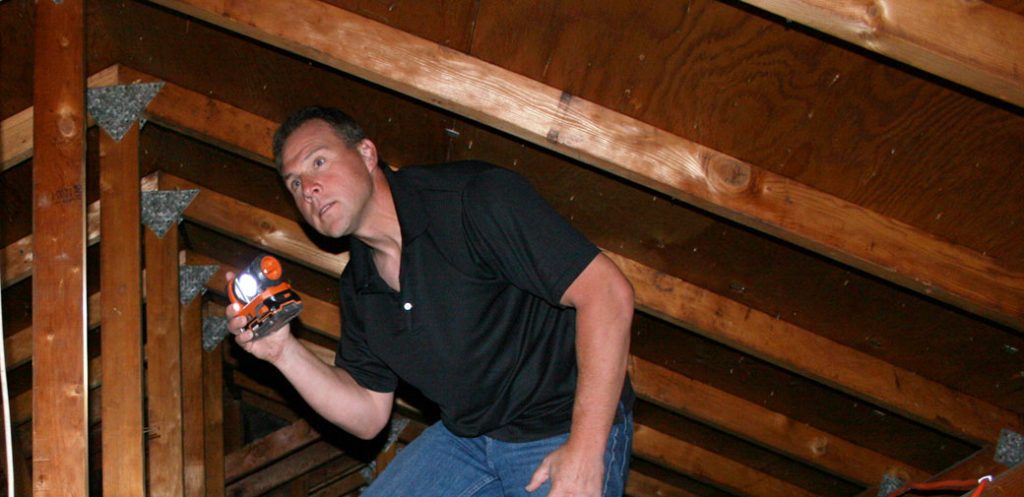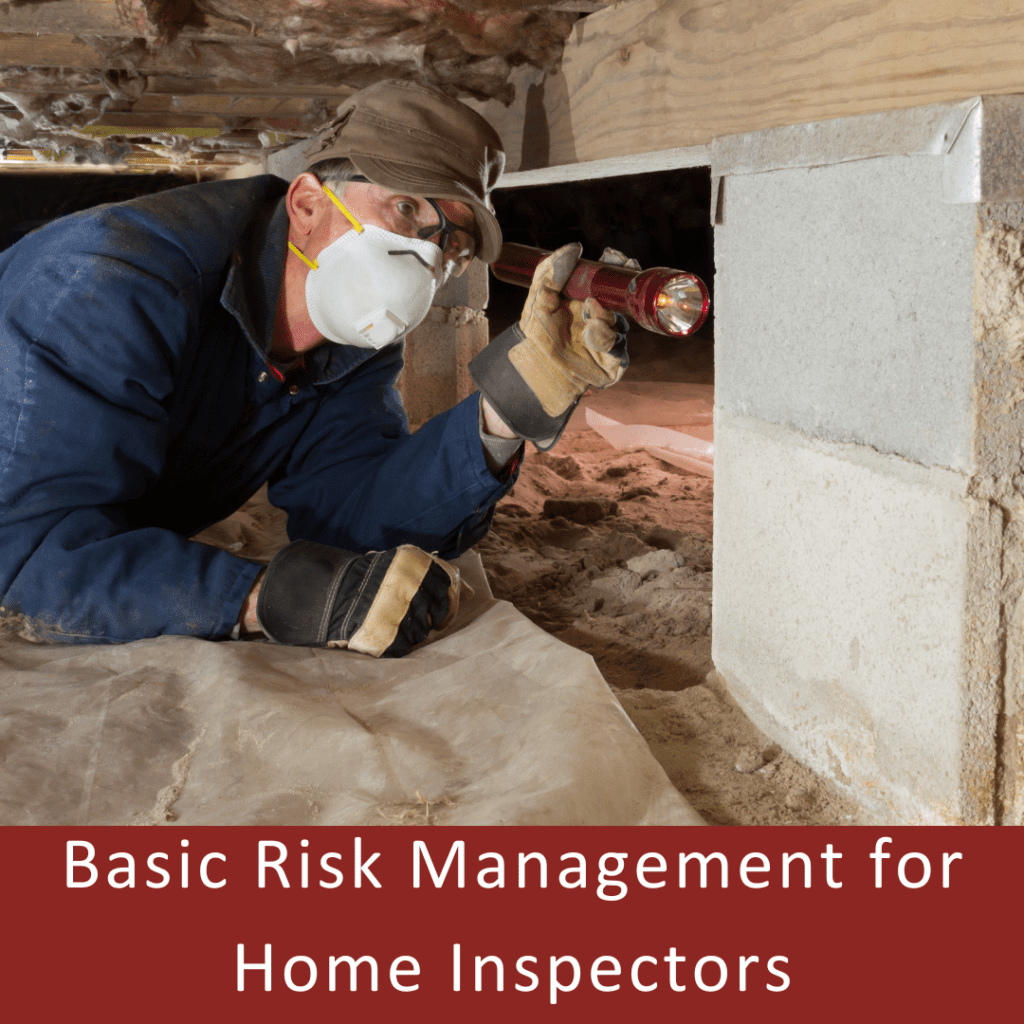Home inspectors are professionally trained to identify issues and risks with a home and may suggest recommendations based on the inspection. A pre-inspection agreement allows you to set the exact terms of your inspection and helps insulate you. EliteMGA requires that you always have a signed pre-inspection agreement before you begin an inspection.
What Is A Pre-Inspection Agreement For Home Inspection?
A critical component of the home inspection process is a pre-inspection agreement. A pre-inspection agreement should be signed by clients before a home inspector performs an inspection. A pre-inspection agreement sets clear expectations and protects the home inspector against future claims and disputes. Key elements for pre-inspection agreements are included in the contract. For added security, EliteMGA provides home inspectors with errors and omissions insurance policies that protect them from lawsuits or claims that are based on omissions or mistakes made in an inspection.
Why Are Pre-Inspection Agreements Important?
Here are some primary reasons why it is important to obtain signed contracts for inspections before starting the work.
- Expectations are set by the contracts – If you put the parameters of the inspection in writing, then it will be easy for the clients to know what is included in their inspection and how they will receive your findings.
- EliteMGA requires signed contracts for every inspection – Before starting to work with clients, understand that regardless of your state’s requirements, your insurance provider might require a signed pre-inspection agreement.
- Most insurance carriers do not cover claims that arise from inspections without a signed pre-inspection agreement – No contract means no limitations or parameters and it will be easy for clients to make claims against you.
What Resources Are Helpful When Drafting A Pre-Inspection Agreement?
There are numerous sample home inspection agreements online. However, these should be used only as references. It’s important to check the state code and have the pre-inspection agreement reviewed by an attorney.
An attorney will provide suggestions on the agreement and ensure that the agreement covers the home inspector in the event of a claim or dispute. The pre-inspection agreement is the home inspector’s first line of defense if issues arise.
Sometimes, pre-inspection agreements are difficult to interpret and understand. A pre-inspection agreement must be easy to read by including proper spelling, appropriate fonts, spaces, and organized text. Although this is necessary, it’s even more imperative that the technical details of the home inspection are easy to understand. Be specific about identifying key elements for home inspection agreements.
Key Elements For Home Pre-Inspection Agreements
- Home inspection fee and due date.
- Exclusions of the inspection. The inspector does not include engineering or architectural services.
- Inclusions of the inspection. Clearly, describe the scope of services.
- Extras that can be included in the inspection for a fee.
- Limitations of liability. See a lawyer and state provisions.
- Dispute resolution process in the event of a claim.
- There is no guarantee or warranty on the inspection.
- All changes to the agreement must be in writing.
There are several types of exclusions, including items that a home inspector: never inspects, usually inspects but may exclude due to extenuating circumstances, and only inspects if the client adds the service for a fee.
Why Should An Attorney Help Write Your Home Inspection Agreement?
It’s crucial to have an attorney’s assistance when creating a pre-inspection agreement since state laws vary. Limitations of liability provisions, in particular, can be location-specific. By drafting an easy-to-follow and clear home inspection agreement, inspectors are likely to resolve disputes before a lawsuit arises, with less impact on their home inspection insurance.
A statute of limitations provision deters clients from coming back with complaints against home inspectors long after their inspection. Additionally, a severability clause protects the contract when a court voids a portion of it.
Operating Agreements for Home Inspectors
Another important agreement for risk and claims management is an operating agreement for home inspectors. A question that often comes up for single-member LLCs is whether or not they need an operating agreement. From the perspective of a litigator with 20-years of experience, yes, you should have a written operating agreement. The reason is to protect you and your individual personal assets, as well as your family’s assets, from any action taken or a judgment obtained by an unsatisfied client or a regulatory body. You want to make sure that there’s a clear line of separation between you and your business in order to preserve the insulation that the LLC or other corporate structure gives.
The Purpose of Operating Agreements for Home Inspection
It’s always better to have a written agreement in which you “dot all the I’s and cross all the T’s” related to setting up the business keeping the records and adhering to the operating agreement. Having a written agreement in place works to preserve this insulation should someone try to sue you as an individual or should somebody try to bring a claim or judgment against your business and seek to enforce that judgment against you personally.
Not every state requires a written operating agreement. States that require a written operating agreement include:
- California
- New York
- Missouri
- Maine
- Delaware
In no state do you have to create your operating agreement and put it on file with the state when you organize and start your LLC. Those are always meant to be kept by you. In some states, like Delaware and Arizona, the corporate records do not even display the identity of the owners of the LLC.
Regardless of state requirements, you should certainly have a written operating agreement. You should also speak to a lawyer in your state who is fully familiar with setting up a business in that state and who knows the state’s requirements for doing so. Consulting with a lawyer will help ensure that you have an operating agreement that protects you, your assets, and your family from any possible liability and sets forth the terms of the operation of the LLC for the future.
Frequently Asked Questions About Home Inspector Pre-Inspection Agreements
Knowing the risks that insurance inspectors face is our business, and we take those risks very seriously. From identifying risks to helping home inspectors mitigate those risks on the job, we constantly research the latest trends in the industry so that we can be prepared to give advice to inspectors who are in search of answers about mitigating risk.
Through our time in the errors and omissions insurance industry, we’ve found that the Home Inspector pre-inspection agreement is among the chief concerns for inspectors, regardless of how much experience they have in the field.
Thus, we have here compiled a short list of errors and omissions insurance questions and answers regarding the pre-inspection agreement, and we hope that it will serve as a resource for inspectors and their clients:
Should all Clients Sign an Inspection Agreement? What about Clients Who are not Local?
Absolutely. The pre-inspection agreement is an essential tool in protecting not only your client but yourself as well. Because non-local clients may have not yet seen the house, it is up to you to protect yourself by securing the inspection agreement signature. In most cases, an email or fax signature will be relatively easy to obtain.
Can Someone Other Than The Client Sign the Agreement? The Realtor?
Under no circumstance should anyone other than the client sign the pre-inspection agreement. Because you are performing a service for the client, and not for the realtor, and because the client will call you if problems arise with the home, it is essential to have the client’s signature on the agreement. Luckily, most realtors will understand that the pre-inspection agreement is an aspect of the inspector’s risk management practices, they can often be relied on to help locate the client and secure their signature.
Should Pre-Inspection Agreements Be Long Or Short? Is There A Specific Link?
The length of the pre-inspection agreement is less important than what you could call its “density.” In general terms, the density of the agreement refers to the number of legal concepts that it introduces, and the amount of plain language versus specialized legal vernacular (legalese) used in the document. In general, as long as the document is drawn up by an experienced attorney then the density and length of the document will be your preference.
In some cases, you may find that you are more comfortable, or that your clients are more comfortable, with a longer and more dense contract. Similarly, you and your clients may be happier with a shorter and easier-to-read or understand contract.
What Should I Make Sure Is Included In My Pre-Inspection Agreement?
While this may seem like a simple question, it is extremely complex. Primarily, because it’s not easy to know what problems can arise and, thus, it’s impossible to accurately know how to protect yourself. Luckily, many example contracts exist online from which you can draw inspiration. Another resource is to inspect your state’s code for information regarding such protections as state limits of liability. When using these pre-written agreements, though, it’s important to remember that you must obtain permission before using them and that you should never use a pre-made legal document without first allowing it to be reviewed by an attorney.
Do Errors And Omissions Insurance Negate the Need For An Inspection Agreement? Vice versa?
Unfortunately, very few legal agreements are actually “ironclad.” There are always loopholes or interpretations of legal codes that will allow attorneys to get around your contract. Similarly, some states simply have legal insurance requirements and thus you must carry insurance. Still, regardless of whether or not your state requires you to carry errors and omissions insurance, it’s important to remember that the home inspection agreement is simply a first-level defense against litigation. The errors and omissions insurance policy is there to protect you if the agreement fails to protect you, and thus it is an essential aspect of every business, not just inspection businesses.
How to Protect Yourself Beyond A Pre-Inspection Agreement?
Home inspectors should have detailed agreements specific to their state law that include key elements for pre-inspection agreements. Additionally, obtaining errors and omissions insurance protects home inspectors in the event of a claim if the agreement fails to protect them.
EliteMGA provides reviews of inspection contracts for the insureds in the InterNACHI program and we give them new contracts where we can’t fix their existing contract.
EliteMGA has created an insurance program exclusively for the home inspection industry. Contact us at 1-800-355-1185 or via our website to learn more about our errors and omissions insurance and your pre-inspection agreement.





